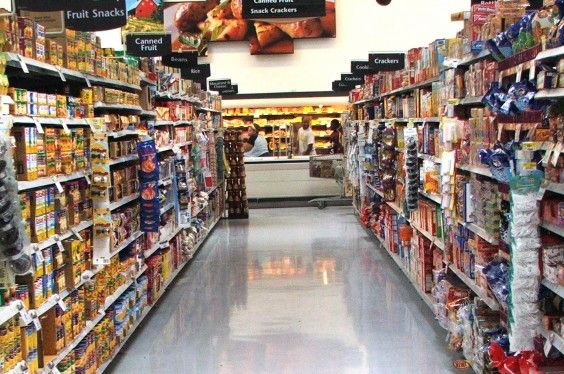So you’re taking the high road. Instead of ordering out for the fourth night this week, you’ve decided to make a pit stop at the supermarket. There’s just one little problem: You skipped lunch, and now you’re starving. We’ve all been there, and likely cruised through the aisles without even recognizing what’s been tossed in the cart. New research suggests shopping while hungry not only negatively affects short-term food choices, but can lead to a whole week’s worth of unhealthy eating.
The Studies
Led by the research team at Cornell University’s Food and Brand Lab, two studies suggest heading to the local super market when your tummy’s a-grumblin’ may lead to a basket full of high-calorie foods
After not eating anything between 12 pm and 5 pm, 68 paid participants (ages 18-62, 71 percent female) were asked to shop online in a virtual grocery store. For every higher-calorie food item — candy, salty snacks, red meat — there was a lower-calorie alternative — fruits, veggies, and chicken breasts (all displayed without prices). Half of the participantswere instructed to eat enough crackers to feel full before they hit the aisles. The other half shopped on an empty stomach. Deprived of food for just 5 hours, the hungry people chose more high-calorie items compared to their full counterparts.
Perhaps the most interesting finding? The hungry participants didn’t just buy more food to satiate their appetites (which they did — almost 20 percent more), they bought more processed junk foods including cereal, chips, candy, and other foods you can eat right out of the packaging.
As a follow-up to the virtual shopping study, 82 participants (split into two groups) shopped in a real live grocery store. This time, they shopped for a short period of time between the hours of 1 pm and 4 pm (when they were likely full from lunch) or between 4 pm to 7 pm (when they were likely hungry for dinner). Again, the hungry peeps (from the second wave) tended to buy fewer low-calorie foods proportionate to overall purchases.
Is it Legit?
We’d say so. Scary as it is, even short-term food deprivation can affect our food choices. So what makes all the hungry folk head straight for the junk food? Fasting has been shown to affects our brains by activating the areas associated with reward
Moral of the story: If your goal is to eat well, have a healthy snack before trekking to the grocery store to stay on track.
Have you ever food-shopped on an empty stomach? Does it affect your food choices? Let us know in the comment section below or tweet the author @nicmdermott.

